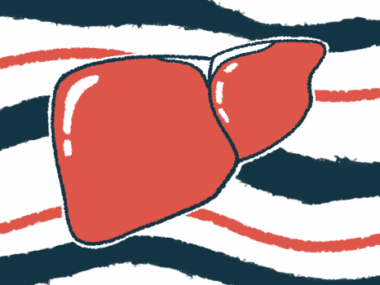PSC treatment bexotegrast safe, eases liver scarring in early trial
FDA supports 1-year Phase 2b trial, company says
Written by |

Six months of treatment with a high dose of bexotegrast, Pliant Therapeutics’ oral candidate, was superior to a placebo at reducing markers of disease progression and liver scarring in primary sclerosing cholangitis (PSC) patients with suspected moderate to severe liver scarring.
The high dose was generally well tolerated up to nine months, without reports of treatment-related severe or serious adverse events.
Those are the findings of the now-completed Phase 2a INTEGRIS-PSC clinical trial (NCT04480840), which confirmed earlier, three-month positive data.
“We could not ask for more from an exploratory Phase 2a study,” Éric Lefebvre, MD, Pliant’s chief medical officer, said in a company press release. “These longer term INTEGRIS-PSC data continue to highlight bexotegrast’s favorable safety and tolerability profile, further validate its broad [anti-scarring] activity in diseases of unmet need and suggest the potential for disease stabilization.”
Pliant also noted that in a recent meeting, the U.S. Food and Drug Administration (FDA) supported the launch a Phase 2b trial that would test multiple doses of the therapy for a year, and use noninvasive outcome measures. The company “will continue to evaluate the best path forward for this program,” the company said.
Blocking proteins to ease symptoms
PSC is a chronic form of cholangitis, a condition characterized by inflammation in the bile ducts, which are responsible for carrying the digestive fluid bile from the liver to the intestines.
The progressive bile duct inflammation and scarring, or fibrosis, that marks PSC can ultimately lead to liver fibrosis that impairs the organ’s function. There is no approved treatment for this rare liver disease.
Bexotegrast (formerly PLN-74809) works by blocking the activity of two types of proteins, called integrins, that contribute to liver fibrosis. The therapy is expected to ease symptoms and slow disease progression in PSC patients.
INTEGRIS-PSC enrolled 121 adults with PSC and suspected moderate to severe liver fibrosis at sites in North America, Europe, and Australia. Participants were randomly assigned to receive one of four doses of bexotegrast, ranging from 40 up to 320 mg, or a placebo. They were followed for up to 40 weeks (about nine months).
The trial’s main goal was to assess bexotegrast’s nine-month safety, and exploratory efficacy goals included changes for up to six months in liver stiffness, liver fibrosis markers, MRI scans, and symptoms such as itching.
The newly announced results concerned nine-month safety data and six-month efficacy findings from the highest dose group, which consisted of 27 patients treated with bexotegrast and nine given a placebo.
The highest dose (320 mg) was generally safe and well tolerated, with no serious side effects reported, and with most adverse events being “consistent with PSC disease symptoms,” according to Pliant. The company didn’t provide further details.
Patients on the high dose experienced decreased liver stiffness, as measured by transient elastography. As scar tissue is stiff and dense, a less stiff liver implies reduced fibrosis. In contrast, most patients on the placebo showed increased liver stiffness, suggesting worsened fibrosis over the course of six months.
Similar findings were seen for levels of alkaline phosphatase (ALP), a marker of liver damage associated with PSC. Average ALP levels decreased with high-dose bexotegrast, but increased with a placebo.
MRI-based assessments of the liver indicated improvements in the health of hepatocytes, the main liver cell type, and faster bile flow through the bile ducts in patients given bexotegrast.
Moreover, fewer patients given the highest dose of the experimental therapy reported itching or acute bouts of cholangitis compared with those on the placebo. Bexotegrast-treated patients had stable scores in a measure of itch, while the placebo group saw their scores increase after six months.
The results “are consistent with previously reported data from [three months] across all doses,” the company said.
“I continue to be encouraged by the consistent safety and efficacy trends seen with these data that clearly align with the data previously presented,” said Gideon Hirschfield, PhD, a principal investigator in the INTEGRIS-PSC trial and a professor at the University of Toronto. The data “suggest a strong clinical antifibrotic effect,” Hirschfield said.
Pliant is also developing bexotegrast for idiopathic pulmonary fibrosis, a disease marked by scarring in the lungs.







